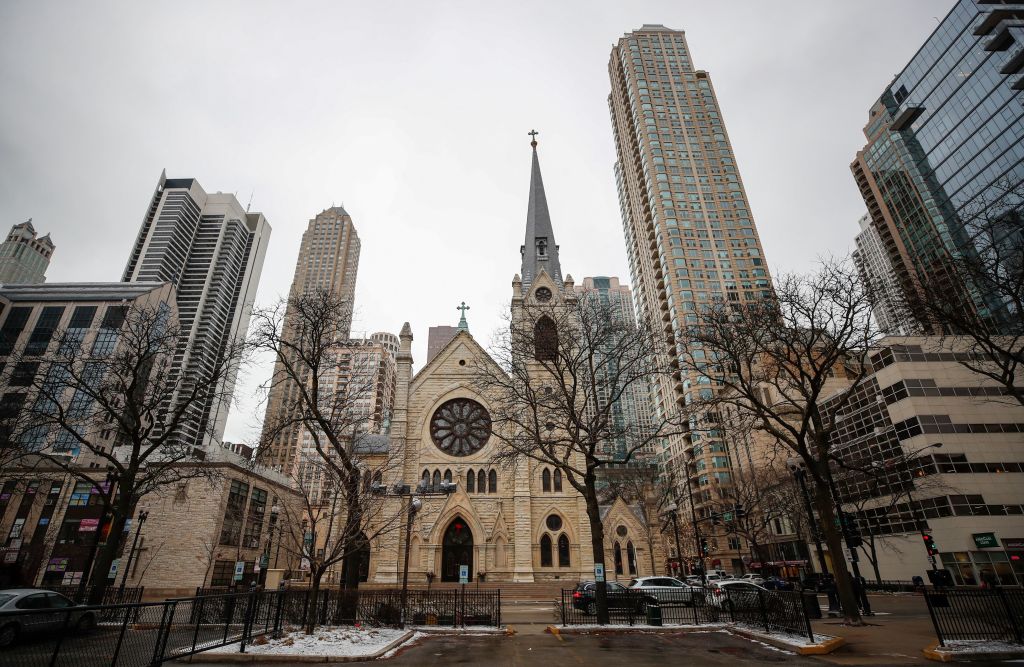
A new report released Tuesday by the Attorney General of Illinois, Kwame Raoul, finds that more than 450 credibly accused child sex abusers harmed at least 1,997 children across all six dioceses in Illinois over almost seven decades.
The 696-page report was the result of a multi-year investigation into child sex abuse by members of the Catholic clergy in Illinois. Investigators say they examined thousands of diocesan files and received more than 600 emails, letters, voicemail messages, interviews, and phone calls from survivors during the process.
Here are four of the biggest takeaways:
1. The church displayed a history of covering up abuse
The report includes detailed narrative accounts from survivors from all six dioceses and shows a pattern of the church failing to support survivors, covering up reports of abuse, and re-victimizing survivors who came forward to report being abused. The dioceses also publicly undercounted the number of child sex abusers in the clergy on their websites.
Before the report was released, the Catholic dioceses of Illinois publicly listed only 103 substantiated child sex abusers, according to the Attorney General’s office. The Attorney General’s investigation resulted in the Illinois Dioceses publicly listing an additional 231 substantiated sex abusers across all dioceses.
2. Many survivors reported long-term harm to their mental health
The report detailed the long-term impacts the abuse had on survivors, reporting that nearly every survivor interviewed noted struggling with their mental health in the years and even decades after the abuse. Survivors struggled with challenges including insomnia, anxiety, suicidal ideation, addiction, depression, and PTSD.
“‘Jeffrey,’ a survivor of abuse by Father Frank D. Westhoff, fell into a deep depression because he felt he could not tell anyone about what had been done to him. Jeffrey’s experiences of depression continued well into adulthood, and he has spent more than 30 years working to address his mental health,” the report detailed.
3. The church received recommendations to standardize the investigation processes
The report contains 50 pages of recommendations to the dioceses for the handling of future child sex abuse allegations. The recommendations included hiring a private investigation firm to conduct consistent investigations of child sex abuse allegations and establishing an independent mediation and compensation program for victims. The report points out that “at least 27” U.S. dioceses have established such processes, and that “the Illinois Dioceses, including the Archdiocese of Chicago—the third largest in the nation—should join their peers in ensuring that the experiences of survivors are handled with care and appropriately compensated.”
4. Survivors in Illinois can’t take legal action past the statue of limitations
Some states, including California and New York, are beginning to enact a “look-back window” that allows victims of child sex abuse to bring civil claims past the statute of limitations, but Illinois does not currently do so. (The state no longer has a time limit to charge state law crimes related to child sex abuse occurring on or after January 1, 2020.)
The investigations offer a form of closure for victims who can no longer pursue legal action, Illinois Attorney General’s office said. “In legal terms, when the statute of limitations has run, a survivor is left with little to no legal recourse. As a result, the public reckoning from investigations like this one may be the only form of justice afforded survivors,” the Illinois report said.
Raoul, the Attorney General of Illinois, said in a press release announcing the report that he hopes the report will offer some closure to the survivors. “These perpetrators may never be held accountable in a court of law, but by naming them here, the intention is to provide a public accounting and a measure of healing to survivors who have long suffered in silence.”
More Must-Reads From TIME
- The 100 Most Influential People of 2024
- Coco Gauff Is Playing for Herself Now
- Scenes From Pro-Palestinian Encampments Across U.S. Universities
- 6 Compliments That Land Every Time
- If You're Dating Right Now , You're Brave: Column
- The AI That Could Heal a Divided Internet
- Fallout Is a Brilliant Model for the Future of Video Game Adaptations
- Want Weekly Recs on What to Watch, Read, and More? Sign Up for Worth Your Time
Write to Simmone Shah at simmone.shah@time.com